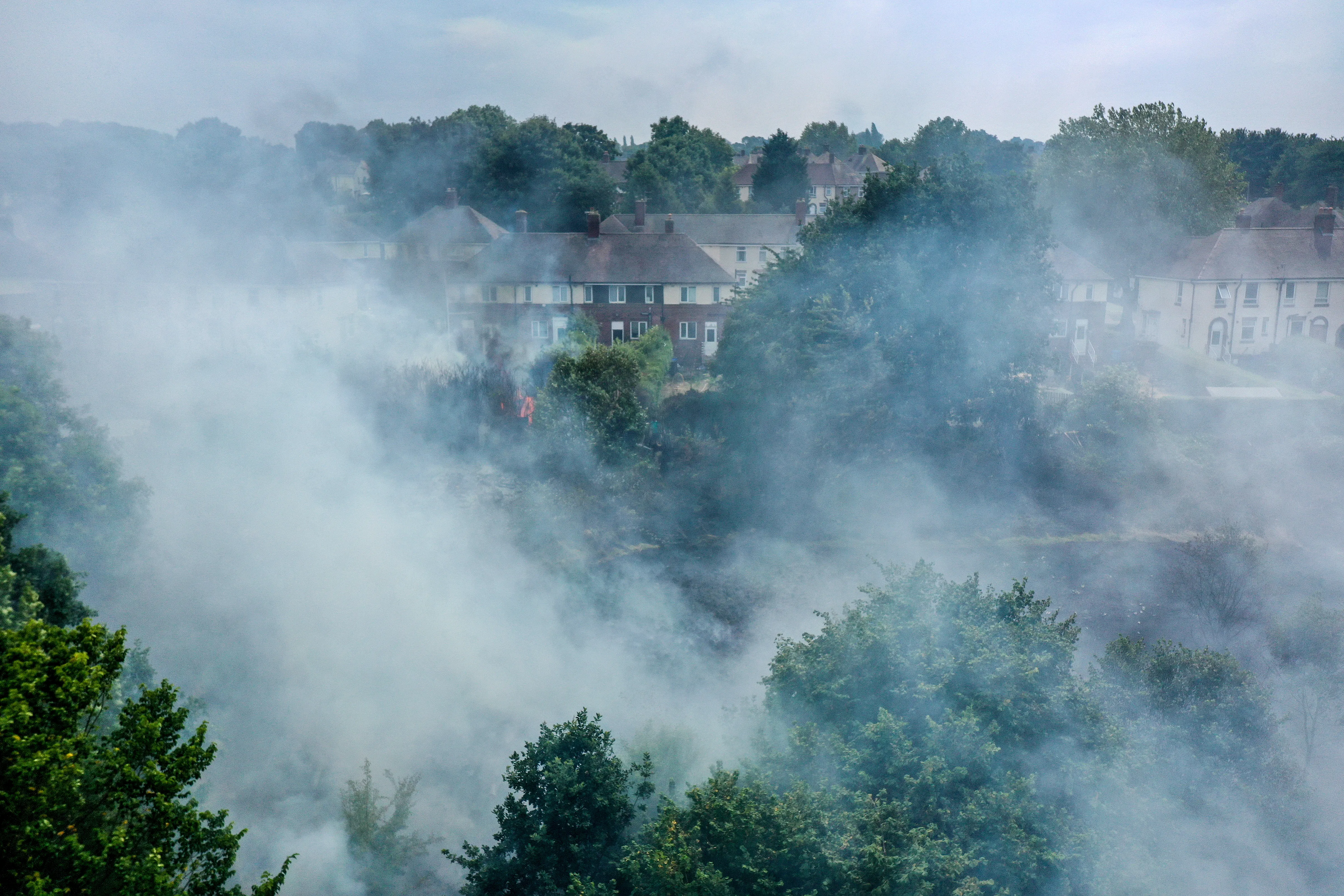
You know that moment when you realize you’re seriously sick, or that your relationship is going to end, or you’ve lost your job, or you realize that you’re about to crash the car? It’s not panic, so much as the queasiness of realization. Like when you see the police lights in the rearview mirror. Ugh.
I feel like we are experiencing a collective queasiness right now. The record temperatures in Europe, drought conditions in the US, wanton invasion of Ukraine, rise of authoritarianism, rollback of women’s rights, spread of new diseases, and more, all make it hard to move through life in a normal way.
How does one do forward-looking things, like take a new job, get married, start a new major project, paint a nursery for a yet-to-be-born child, or even plan a trip to the beach when they don’t have any sense of certainty about the future?
One way to move forward is to ignore or deny. We have all learned to ignore, at least for a few moments at a time. That’s why we have TV and Netflix, sports and gossip. After half an hour of yoga, I am more focused on the depth of my chateranga than that of the rising oceans. That’s fine, I suppose, as long at it’s temporary. A way of recharging so that I can get back to work.
Denial is a little more tricky, but I see the appeal. Just conclude that all of these alerts are more the product of an overarching system of control than they are true emergencies. “They” want us to remain in a state of panic so that we surrender our agency to the government. The media, working in concert with leftists, are magnifying the extent of our problems in order to seize our assets, guns, and nervous systems. It may sound a little scary on the surface, but it’s ultimately a comforting story. Nothing is actually wrong; it’s all just propaganda. If we stop listening to the democrats and the globalists, we can carry on just fine.
I don’t know if this “Don’t Look Up” strategy is going to work much longer, but I understand why so many people choose it over the alternatives.
If we’re going to stand any chance of drawing denialists out of their delusion, and ignorers away from their distractions, we’re going to have to offer them something better than a nightmare. The scarier things get, the less likely anyone is going to want to wake up and join us in the harsh light of truth.
Instead, I think we must ask people to join us in our positive, worthwhile, rewarding, and sometimes even fun approaches to repair. We don’t necessarily need people to see the water rising; we need them to stack the sand bags. I understand that people sometimes need “wake up calls,” but when every alarm bell is ringing at once, it’s hard to rise to the occasion.
Many believe that our society, like any addict, needs to hit bottom before we can admit we have a problem and forge the solidarity we need to recover, together. But unlike an individual addict, our civilization may not be able to hit an absolute bottom and then prove resilient enough to bounce back. I’m not certain the 12-step model works at scale. Nor am I sure we have to sink to the very depths of despair, self-harm, and collateral damage in order to choose a different course.
Think of it as adopting a good bedside manner. We need more people to join us in taking effective measures toward collective flourishing. And most of these activities, from mutual aid and community building to local agriculture and climate remediation are good, hard, but satisfying work. It happens outside corporate control, it engenders solidarity, it is less taxing on the environment than most forms of entertainment, and it absolutely necessary if we want to shepherd as many people and other lives as possible into the future.
The surest cure for that queasy sense of impending doom is not to avoid or deny, but simply to get to work. Whatever happens after that, at least we’ll go through it together.